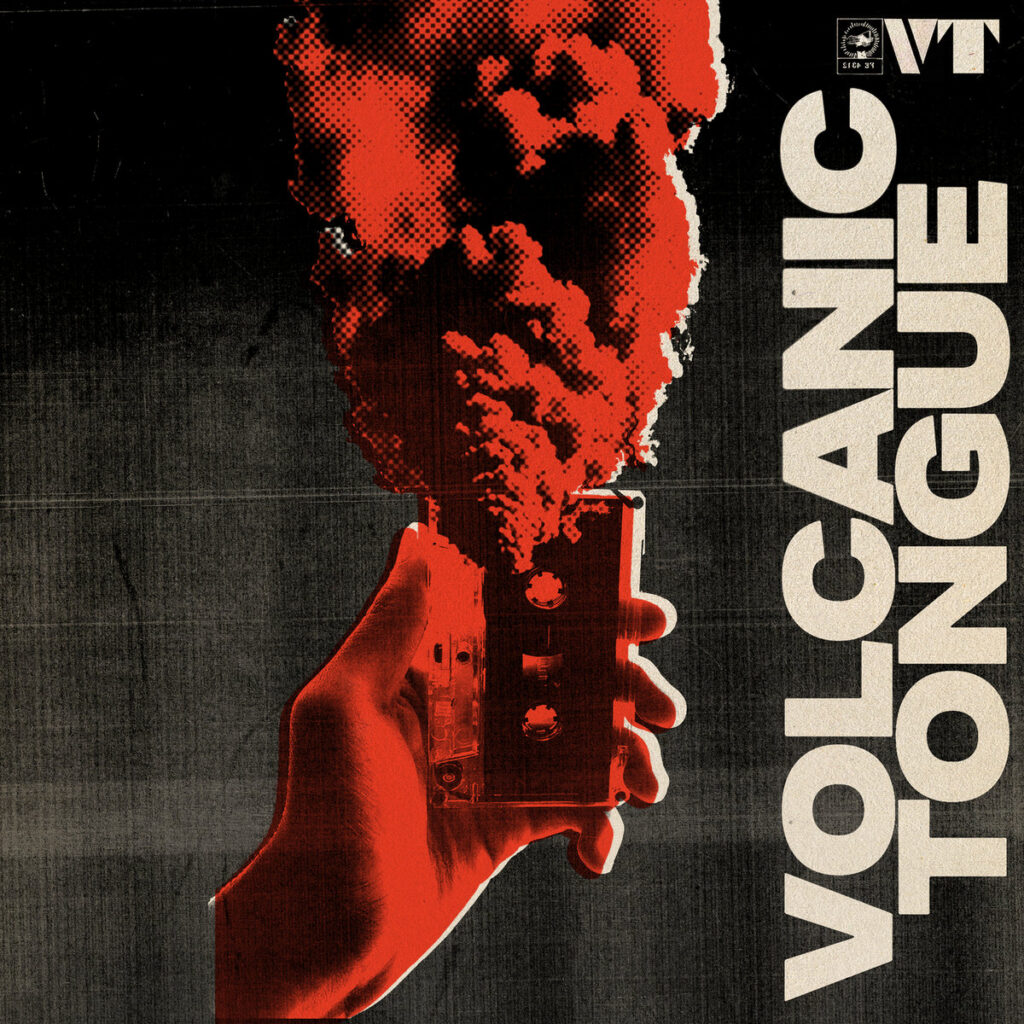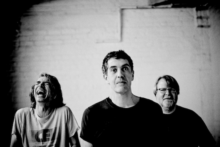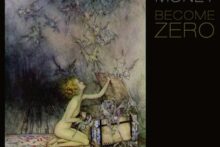Glasgow’s Volcanic Tongue record shop and mail order company was in business during the period 2005-2015. It specialised in self-released, small-run experimental music; its stock teemed with unfamiliar names, and encouraged the adventurous music fan into new terrain. Founded by Glaswegian writer David Keenan and Texan musician Heather Leigh Murray (now Heather Leigh), Volcanic Tongue’s legacy is celebrated with a new compilation, put together by Keenan himself and accompanied by a standalone book of his music journalism.
Keenan, at the time of Volcanic Tongue’s foundation, was a writer for The Wire. He was steeped in unorthodox sounds and had observed that while Americans had a healthy underground music mail order economy, supporting underground artists to get their music heard and CD-rs sold, there was very little in the UK to compare. Leigh was herself one of these musicians who benefited from the network of passionate US distributors, both in the music released under her own name and as part of the duo Scorces.
Each week, Keenan would review every single new release and reissue stocked by the shop. These reviews would then go out to Volcanic Tongue’s customers as a newsletter and he came to see these communications as an intrinsic part of his work there. When he was interviewed at the time of the shop’s closure, he acknowledged this popularity, lamenting that Volcanic Tongue had many more readers than customers. His Volcanic Tongue prose was so popular because, in some ways, it represented the dying art of music writing as mystique. As the internet began to dominate listening, Keenan resisted giving easy access to the music he wrote of. Even in the shop’s later days, when it was perfectly possible to link to sound clips, Volcanic Tongue’s newsletter did not. Instead, Keenan asked a reader to imagine a sound, and make a decision to purchase on that basis.
If Keenan had a more fussy-minded approach, this compilation would concentrate on the new music released when the shop was a going concern, snapshotting the underground of the time. But that would not have been a true reflection of the Volcanic Tongue philosophy. The shop always had a healthy attitude to rediscoveries and reissues, and its ‘Tip of the Tongue’ selection – basically the record of the week – was chosen regardless of the year of first release.
All selections on this compilation are former Tips of the Tongue, and the earliest included here is ‘Tables Of Grass Fields’ by The Bachs, from 1968. In essence, The Bachs’ experience is barely different from the contemporary artists stocked by Volcanic Tongue. Here was a bunch of Chicagoan teenagers, who recorded their sole, private-press album over ten hours in a makeshift studio. Only 150 copies were released at the time, sold largely to local fans who had seen the band play in school dances and parties. Compare with Christina Carter’s supernatural ‘Seals’ – self-recorded and self-released on CD-r in 2009 in an edition of 99 – and the parallels are clear. The vast majority of musicians on Volcanic Tongue recorded at home or in a local sympathetic space, and offered their music for sale at gigs or the few record shops interested in such micro-endeavours.
Carter, as part of Charalambides, was one of the acts Keenan brought to wider attention through a 2003 cover piece for The Wire magazine (and which is reproduced in his new anthology). Reporting on the Brattleboro Free Folk Festival, Keenan coined the phrase ‘New Weird America’ for performers like Sunburned Hand Of The Man and MV & EE; these were artists indebted to the psychedelic folk music of the 1960s and 1970s, but never bound by it. Volcanic Tongue well represents this sensibility, and up to half of this compilation feels aligned to free folk oscillations. Such an atmosphere links, for example, the muffled tenderness of ‘Serenade To Sophia’ by Circuit des Yeux to Simon Finn’s mystical ‘Patrice’, a song recorded more than three decades earlier.
Volcanic Tongue does a fine job of busting the myth that underground music equals scary noise. There is some, of course; the wailing freeform blues of New Zealand’s Metal Rouge is the compilation’s best example. Perhaps surprisingly, though, there’s little trace on Volcanic Tongue of the darker corners of the Coil-Current 93-Nurse With Wound influence that Keenan explored in his 2003 book, England’s Hidden Reverse. Indeed, listening to the act on here with the grimmest name – step forward, The Scrotum Poles – is when the compilation offers a rare rapport with more conventional sounds. From Dundee, The Scrotum Poles self-released ‘Pick The Cat’s Eyes Out’ (the track included here) on a seven-inch in 1980, and their sound is akin to fellow Scottish janglers Orange Juice and Josef K.
Keenan has said that Volcanic Tongue closed only partly because of the post-financial crash economic downturn that made life for small businesses so difficult. He had personal, family reasons for shutting up and, combined with his desire to explore fiction writing, this spelled the end for one of the UK’s most distinctive record shops. Now Keenan is a successful and award-winning novelist. He has credited his time as a music journalist as invaluable. “Through transcribing endless interviews, I learned how people speak, and how to capture their rhythms on the page,” Keenan writes in the introduction to the Volcanic Tongue book. “Through the challenge of writing about an ineffable thing like music, my prose became primarily influenced by it.”
The era represented by Volcanic Tongue feels more distant than it actually is. This time of lovingly packaged CD-rs and cassettes, which were – crucially – cheap enough to take a punt on has largely passed. But through this compilation, Keenan reminds us of that spirit, and makes the perfect case for a tastemaker’s role. He finds a common intimate mood among these twenty tracks, creating a feeling that a personal secret is being shared: and that you are one of lucky few to hear it.




